#harry vincent
Text



From Shadow Magazine #39: Road of Crime
I want more of you to appreciate how often part of The Shadow's plan to uncover in-depth crucial information about a case or it's suspects boils down to "send Harry Vincent somewhere and let him make new friends", and the fact that it works.
For further context: Graham Wellerton is a very smart, very cagey and very bitter ex-criminal currently trying to turn over a new leaf and redeem himself through extensive philantropy with his evil bastard uncle's inheritance (he is the main character and the story is about his redemption). Wellerton spends much of the book trying to ignore the people after him that forced him into criminality, but he's so paranoid that, just before the climax, he ends up viciously and venomously turning on the people that pulled him out of jail and overlooked his past and housed him and inspired him to try and better himself, even spouting how stupid he was to trust anybody.
I was right when I was crooked. I trusted no one then. I refused your friendship because I suspected everyone who ever pretended to be my friend.
That same guy also repeteadly let a stranger from Michigan into his home for chat with never the slightest bit of suspicion, not even when Harry's visit is interrupted by Wellerton's wife (the person that basically forced him into crime). That same guy has also spent this whole book scared of The Shadow, terrified that The Shadow will pick up his trail again and come for him, regardless of his attempt to reform (completely unaware that, not only has The Shadow never once lost his trail, but has been working silently to ensure he stays reformed).
That guy? Never once suspected Harry. Nobody ever does unless they're villains. Harry Vincent is just The Most Trustable Man Alive.
#pulp heroes#the shadow#harry vincent#the shadow magazine#been catching up on some stories for an essay#Kings of Crime has very very very little Shadow presence and Harry is even more barely there#the story is very much worth reading though#Graham is one of the most compelling proxy heroes I'd ever seen in a Shadow story#he very much tries to reject his redemption and even after having it's a very hard-fought one#I'm really curious as to how that friendship even formed#two guys being dudes smoking pipes talking about Real Estate and covering each other's big dark secrets just waiting around the corner
25 notes
·
View notes
Text
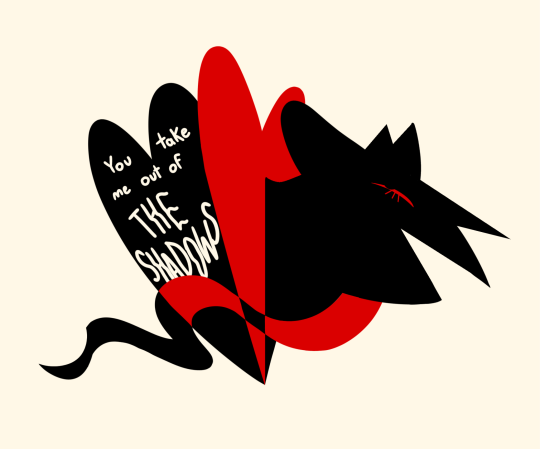

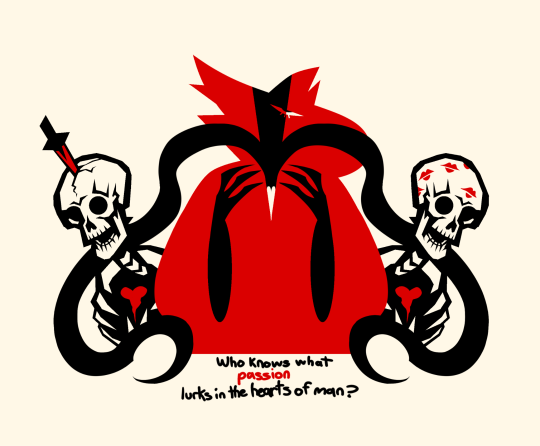
30 notes
·
View notes
Text
The first issue for The Shadow Strikes! was released with a cover date of September, 1989. The series, based on the pulp/radio era hero, ran for 31 issues. ("Death's Head", The Shadow Strikes! 1#, DC Comic Event)
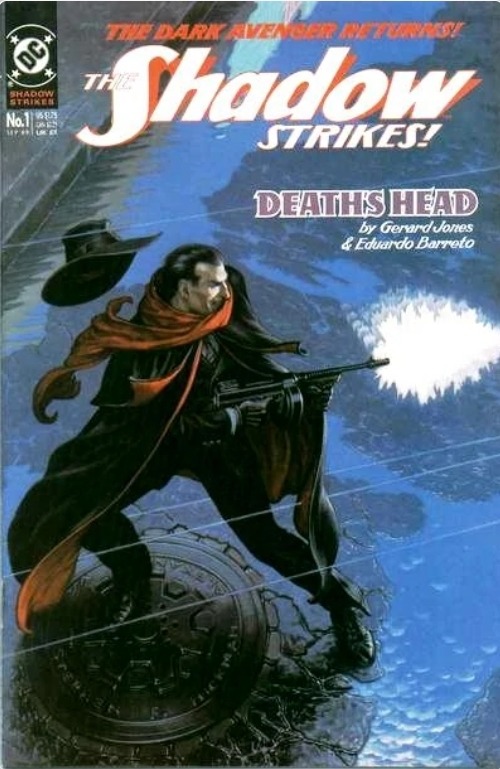
#nerds yearbook#real life event#comic book#dc comics#dc#the shadow#gerard jones#eduardo barreto#the shadow strikes#margo lane#harry vincent#inspector cardona#vigilante#rasputin#madame zara#gypsies#lucille cheviot#algis moncrief#john nichols#september#1989
24 notes
·
View notes
Text
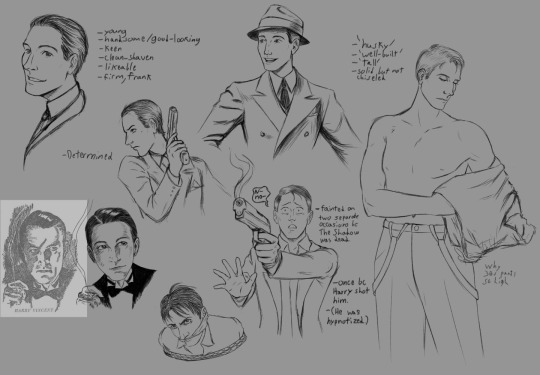
If I keep drawing him I might eventually figure out what he looks like
(Used a pose archives ref for the far right, link is mildly nsfw)
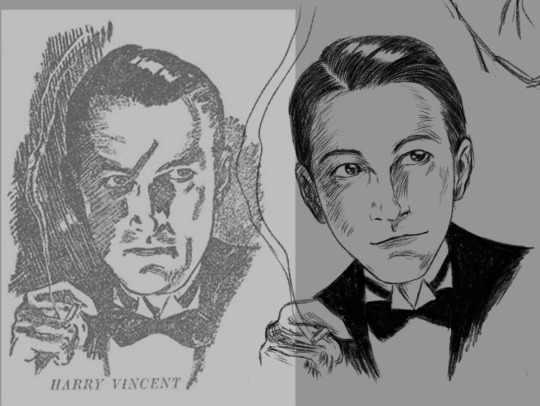
This redraw is probably my favorite
#art#fanart#the shadow#harry vincent#idk man#gun#smoking#character design#none of these look like the same person siiiiigh#whatever im moving on to another agent#FUCK I keep forgetting alt text#alt text added
23 notes
·
View notes
Text

Life is too much sometimes. FML. Schrödinger's inbox. That slack ‘click’ sound. Traumatic response. Click. Read. Unread. Star. Favourite. Attention. Gimme. Your phone says. This Red dot dictates your life. A call to open. Close it. The numbers only ever go up. There’s more here than in my bank balance. WTF. I can’t take this anymore.
Inbosixsixsix
[DIGITAL ARTWORK, 2023]
‘Existing digital imagery, recontextualised.’
IMAGE SOURCES:
Gmail Logo: Google Inc., 2020.
TYPEFACES:
(Numbers) ‘San Francisco Pro’ by Apple Inc.
IMAGE DESCRIPTION:
A portrait image depicting a curved White square, with an ‘M’ shape confiding into the seems of an envelope with Blue, Red, yellow and Green sections, on the top right of it sits a Scarlet Red capsule with the numbers ‘666’ in a White Sans-serif font. All on a Black background.
3 notes
·
View notes
Text
New chapter in Between The Lines for Cliff and Harry in Double Z, because the idea of this being their first meeting amused me and I have a weakness for people being surprised/impressed by Harry Vincent
3 notes
·
View notes
Text
Pulptober 2022: 17 - Harry Vincent
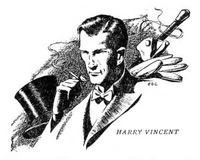
Harry Vincent is one of the Shadow’s agents. He appeared in the very first magazine, where the Shadow saves him from suicide, after which he becomes his faithful ally. He operates mainly as a spy.
3 notes
·
View notes
Text
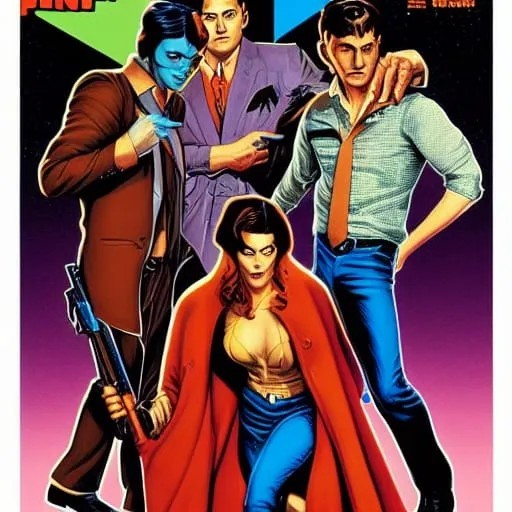
17-Harry Vincent/Agents, Aides, and Allies
2 notes
·
View notes
Text

World's most relatable game
4K notes
·
View notes
Text
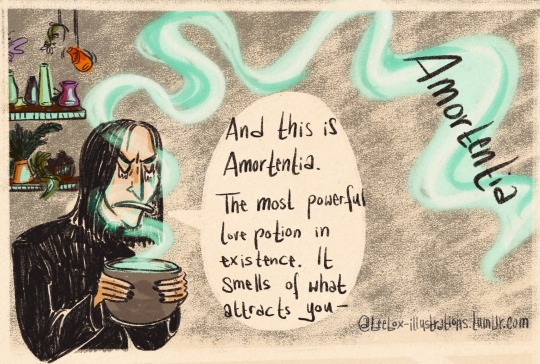

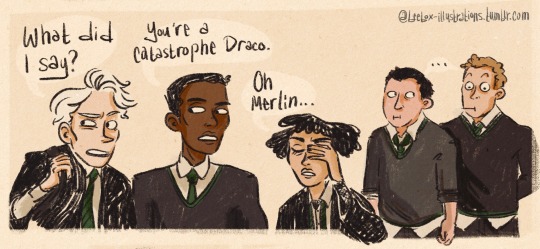
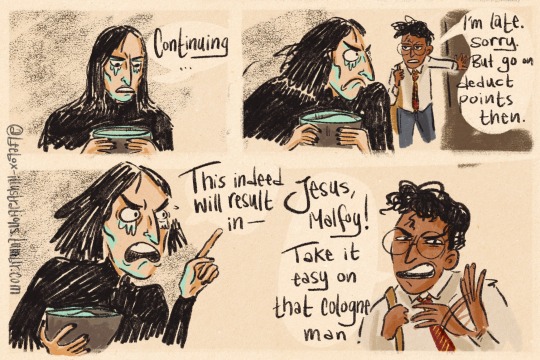
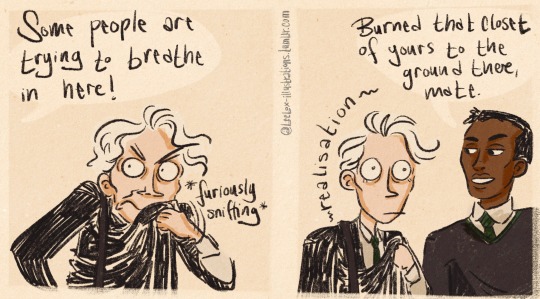


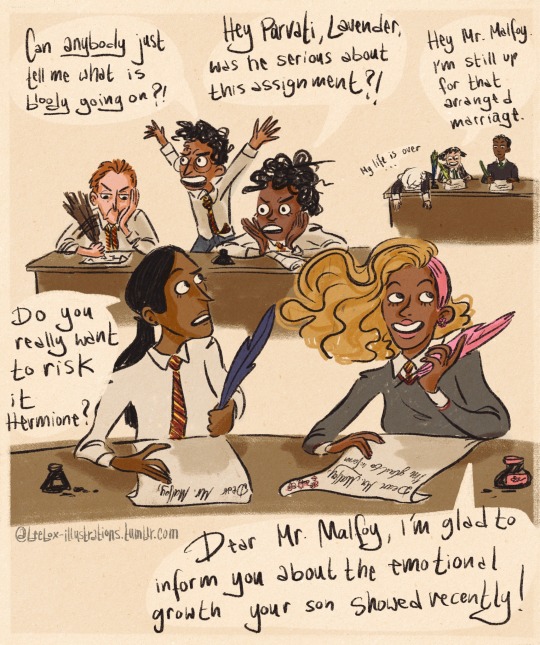
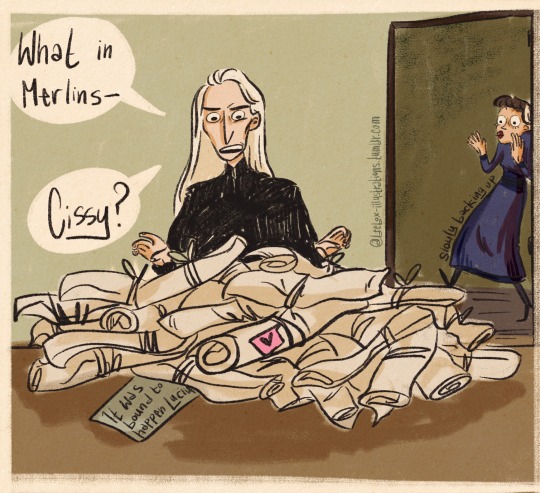
Someone ought to tell Harry…
Have a wonderful week everybody 🌻🐝💚
#harry potter#digital art#beebox-illustrations#illustration#my art#procreate#web comics#illustrators on tumblr#draco malfoy#drarry#pansy parkinson#blaise zabini#ron weasley#hermoine granger#lavender brown#parvati patil#gregory goyle#vincent crabbe#severus snape#poor boi#all those teenagers#i could not#lucius malfoy#narcissa malfoy#Parvati and lavender being the gossip sisters#amortentia
16K notes
·
View notes
Text
Pulptober 2022, Themes Elaborated, Part 4
As I promised at the end of Part 3, to make up for the two days of Judaism-induced radio silence between Part One and Part Two, you get two today!
16-Brain Boy/Not All Heroes Wear Costumes
While not as prone to costumes as their super-successors, a heaping helping of Pulp Heroes wear a recognizable costume, or at least an iconic hat or strategically-torn shirt. But just as many prefer to dress like normal people. This day’s for them. Alternate Examples: The Scarlet Pimpernel*, Nick and Nora Charles*+.
17-Harry Vincent/Agents, Aides, and Allies
Whilst many Pulp Heroes are veritable supermen (and women, and hopefully enbies someday), they aren’t omnipotent, omniscient, nor omnipresent. They need people working with and/or for them to get the job done, who are often pretty awesome in their own right. This day is for saluting them. Alternate Examples: “Monk“ Mayfair, Nita Van Sloan, Lothar*.
18-The Rocketeer/Hero By Accident
These are Pulp Heroes who never set out to be heroes, but by circumstances find themselves in a situation where they have the ability to make things right, and they inevitably choose to do the right thing. Alternate examples: Click “The Gadget Man“ Rush, The Nyctalope*+
19-Ogon Bat/Origins In Ancient Times
OK, I’m cheating a bit here, because this one has two meanings. It can refer to the character being one of the older examples of the Pulp Hero breed, or it can refer to the fact that the source of their power is not some sort of super-science, but instead a lost secret from the distant past. Alternate Examples: The Reverend Doctor Syn* (for meaning one), Phra The Phoenician* (for meaning two; I was gonna use Sun Koh, but...let’s not open that can of worms, huh?).
20-The Saint/Heroism For Fun And Profit
These Pulp Heroes do what they do not so much out of a burning need for justice, as because they enjoy it, and they usually expect to be paid for it. Alternate Examples: Sherlock Holmes, Luke Cage.
21-Conan/Good Is Not Nice
These Pulp Heroes are really more like anti-Heroes. They can generally be counted on to do the right thing (eventually). But they’re gonna be huge assholes about it the whole time. Alternate examples: The Whisperer, “Dirty“ Harry Callahan*.
And that’s Part Four! Tomorrow, hopefully, I’ll do another part.
*I have not consumed much, or any of the source material
+Suggested to me by @maxwell-grant. Once again, thank you!
#Pulp Heroes#Pulptober#Pulptober 2022#Inktober#Inktobers#Inktober 2022#Brain Boy#The Thin Man#Nick and Nora Charles#Nick Charles#Nora Charles#Scarlet Pimpernel#The Scarlet Pimpernel#Harry Vincent#Monk Mayfair#Nita Van Sloan#Lothar#The Rocketeer#Click Rush the Gadget Man#Click Rush#Gadget Man#The Gadget Man#The Reverend Doctor Syn#The Scarecrow of Romney Marsh#Phra the Phoenician#The Saint#Sherlock Holmes#Luck Cage#Power Man#Dirty Harry
1 note
·
View note
Note
How would the Shadow deal with a situation akin to Phantom of the Opera? For that matter, Phantom of the Paradise?
THE SHADOW OF THE OPERA - Libretto by Max & Grant
An opening disclaimer: I’ve been asked before as to how I’d cross over The Shadow and Phantom of the Paradise, my response to it being that I wouldn’t, not even hypothetically. It’s just not something I’d entertain the notion of, I’m pretty firmly adamant in the idea that Phantom of the Paradise is perfect as is and I would change nothing about it, nor would I place it’s characters in any other context, really there’s nothing I think could be added, or worth telling, by making it part of a crossover or giving it a sequel or etc. It’s really not that similar to the OG Phantom story and it’s going for a very different theme and tone and one that doesn’t really work if you tweak it to add outside elements. I’ll still bring it up as a reference, mainly for comparison’s sake.
Now, if we’re talking a crossover between The Shadow and The Phantom of the Opera?
ACT 1: THE MASTERS OF DARKNESS
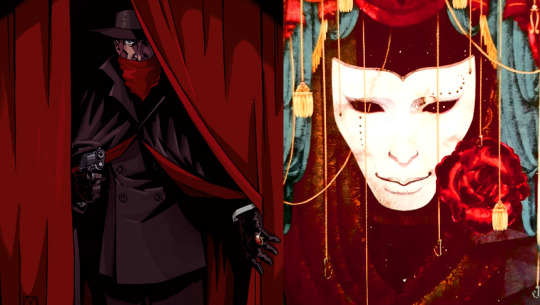
(The Shadow by Matt Wagner, The Phantom by Kyu Ha)
And he gave a demented laugh. That damnable, unstoppable voice of the ventriloquist was everywhere!… It entered through the spyhole… passed through walls… it was all around us… between us… Erik was there!… - The Phantom of the Opera
In theory, a lot of the general concepts at play for The Phantom of the Opera are not unusual within The Shadow's domain. A "haunted" opera house that turns out to be under the thrall of a theatrical criminal pretending to be a supernatural force, a situation escalating via grisly and inventive random murders, cavernous rooms with every false move leading to a potential death trap, a villain who utilizes grand theatrics like ventriloquism and stage magic to terrorize the innocent, a love affair gone bad, a gothic horror vibe, even the fact that Phantom of the Opera is a murder mystery written in a journalistic format, on paper this sounds like something that you would already find in a typical episode of the radio show (and indeed there are, in episodes like "The Tenor With A Broken Voice", "Ghosts Can Kill" and "The Hypnotized Audience").
Give or take some details and you could make a similar argument for Phantom of the Paradise, especially considering Swan has already a lot in common with the kind of villain that The Shadow tends to fight against in the pulps. There’s an argument to be made that one of the crucial differences between the pulp Shadow and the radio Shadow was that the radio Shadow fought monsters who mostly turned out to be people, and the pulp Shadow fought people who mostly turned out to be monsters. The radio Shadow generally fought terrorists and supernatural threats who revealed themselves to be petty crooks and maniacs, and the true villains of most Shadow pulp stories tended to be respectable figures of standing who revealed themselves to be twisted murderers, ideas that align rather neatly with the villains of both stories, Erik and Swan.
Generally, crossovers that put The Phantom against an existing heroic detective, say, Sherlock, usually have to make the story about said detective trying to stop The Phantom and either succeeding or failing. Which is, fair, certainly The Shadow would not allow The Phantom to run around terrorizing and murdering innocents, no matter how tragic his story was or even if he had other characters vouching for his inherent goodness, and no Phantom would allow a trespasser to get in their way. The story engine would shift into becoming a conflict between two dark puppetmasters each trying to stop the other with everyone else caught in between, and while that’s not a bad premise, that doesn’t seem, quite right. Seems rather limiting, for these characters. There’s a bigger story here behind the curtain.

(Art by Giovanni Timpano)
The problem with a crossover between The Shadow and The Phantom is that, in a lot of ways, these two are made to occupy the same narrative space, and there’s an argument to be made that they are almost the same character. To place the two in the same narrative against each other (the only outcome that could be possibly expected, we as an audience may be lenient and sympathetic to The Phantom, but The Shadow’s tolerance would be gone the second he started going after the Garnier workers) would be to pit them in a clash, where either The Phantom loses all of his grand mystique and larger-than-life characterization and becomes ultimately just another masked terrorist and fraudulent magician for The Shadow to defeat (more dangerous than the usual lot for sure, especially in his element, but nothing beyond The Shadow, especially since he already has extensive knowledge of The Phantom’s repertoire and makes use of it himself), or The Shadow ends up reduced to a bit player, just a setback in the way of the love and tragedy that must unfold, not even a good one since he ends up working against the story.
The biggest issue at play here is that, unlike The Shadow, The Phantom exists in a story with a clear ending that necessitates it to play out as it does. As Phantom of the Paradise must have Winslow squirm under the thumb of the omnipotent Swan only to sacrifice the two of them at the altair of the film’s real villain, the music industry and it’s cult of personality, in order to save Phoenix from being dragged down with them, The Phantom of the Opera must have Christine, Raoul and The Phantom be trapped in a love triangle and for Christine to save all of them by “marrying” Erik and accepting him even at his most monstrous, allowing him to redeem himself through love as he finally experiences compassion and thus lets her and everyone else go. The precarious balance of transcendental hypnotic power and intense mercurial danger and haunting tragedy that defines the character is one that would be severely damaged by the inclusion of a 2nd Phantom who does, pretty much everything that the original Phantom does and then some. If these two were to be in the same story and time period, they would automatically be counterparts and rivals to each other.
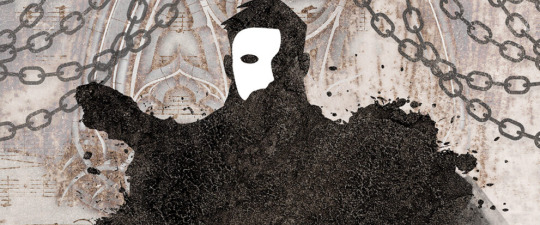
(Art depicted in zoastudio)
As ghostly terrors of the night, who turn out to be masked geniuses with a proclivity and skill for theatrics, such as sleight-of-hand, ventriloquism, illusion crafting, escape artistry, hypnotism and so forth, that have been honed to confer them godlike power over their surroundings. Urban masterminds with domineering personalities, resources beyond the scope of any law enforcement’s ability to detain, hidden sanctums full of secrets, with backstories as men who’ve traveled the world in search of purpose learning dozens of skills they would later apply in their masked endeavors. Even down to other details like a proclivity for slouch hats and dark cloaks, glowing intense eyes that reveal their true nature even under disguise, Erik’s deformity and the implied horrific secret of The Shadow’s true face, or the pulp orientalism present in their backstories, the two having once served empires as instruments of murder before becoming rogue agents, a restless genius that makes them unsuited for normalcy (even when it’s what Erik craves above all else), an outstanding gentleness and tact that, under the right context, both serves to humanize as well as underscore how terrifying they can be to their enemies, really, it’s easier to list the stuff that they don’t have in common.
One of the most interesting things about “evil rivals/counterparts”, from a narrative standpoint, is not so much the danger they pose, but rather, what they say about their “good counterpart”, usually the hero. In what ways they are just similar enough to be effective mirror images, what twist is enough to set them off on a completely different path, what does it take for one to become the other and vice versa. Evil Counterparts can be particularly effective tools to disturb your protagonists once they meet their mirror self. Of course, this isn’t happening with neither The Shadow, nor The Phantom, but rather, those who often must react to them. They rarely appear alone, after all.
ACT 2: THE ACOLYTE TRIAD
Among their similarities, more interestingly to me is the fact that these characters are also part of a triad of sorts, consisting of them, another man, and a woman. The man is defined by his youth, kindness, bravery, honesty, and complete and total 100% devotion to someone (no prizes for guessing who, on either end), he’s a safe, warm light in the dark. He’s an upstanding clean-cut gentleman who is also deeply reckless, and whose approachable but innocent make him not just contrast with the Master of Darkness that rules the story, but also make him a target for danger, even if he is ultimately going to survive. The woman comes from a background that has more in common with the Master of Darkness, and in many ways she shares traits with him as well, they share a rather turbulent romance, but she’s defined strongly not just by her strength and compassion, but also by her independence of will, as she is the one who is most able to resist his will and approach him as an equal, and while she’s often forced to play the damsel, she has a level of control over her story that the other characters do not get, and if there’s anyone the Master of Darkness will listen to, whether he wants it or not, it’s her.
These three are bound to each other, even as their personalities are altered through repetition of the story, even as one of them (usually the young man) tends to get phased out or written as a jerk. They cannot escape each other. They are creatures of the story and the story calls for them to be together.

(Art by MAZM)
"Perhaps his brief interlude as The Shadow restored Cranston's appetite. At any rate, he dined that evening, though not with Commissioner Weston. Instead, he had dinner in an isolated corner of a small and quiet restaurant, with two friends: Harry Vincent and Margo Lane.
"Honest, trustworthy, reliable, Harry was all for The Shadow at all times, basing his loyalty on the proposition that The Shadow was always right.
"An intelligent, attractive brunette, Margo knew just how and when to supplant wisdom with glamour, and vice versa. Withal, she had a constant charm that matched Harry's reliability.
"Other persons might have considered The Shadow as Cranston in disguise, but Harry and Margo took the opposite view. They were agents of The Shadow, who chose, on occasion, to appear in the guise of Cranston. Thus, when Cranston spoke, they listened eagerly, for they were hearing the words of The Shadow." - Garden of Death
So an interesting idea to me is, how would they all co-exist within the same narrative? How do they fare while the two dark masters are trying to put an end to each other? And how does this clash of triads affect them all, in turn? How does Harry respond to someone who is so, so, so similar to The Shadow, in so many ways, and yet is decidedly a much different being in others? Can Raoul afford to trust The Shadow and those who follow his word? Can he afford not to? Imagine if Erik, the world’s greatest ventriloquist, is able to perfectly imitate voices as The Shadow does. Can they afford to trust anything they hear, then?
Looking at The Shadow and the two that trust him so much, does Christine see a glimmer of hope that Erik could indeed find salvation and that their triangle won’t have to tear them apart? Or does she feel pity for the two? Christine has, after all, a lot more power and control over the Phantom’s decisions than Margo has over The Shadow’s. Do Raoul and Christine face the two as proof that, no matter what happens to them, the world will still produce more Phantoms to prowl the night imposing murderous judgement, a prospect as frightening as it’s tragic. Does it disturb Harry and Margo to look at a dark prospect their lives could have taken under The Shadow? Or does it only reaffirm their trust in him and his efforts? What if it pushes them to even try to save Erik, because they aren’t nearly as scared of him and his power as Raoul and Christine are, and having witnessed other traumatized, ostracized victims of society given new lives under The Shadow’s network (also because they very clearly pick up on how much he’s like their boss and they don’t want him to die), they want to try and reach out to Erik’s heart, even if they must defy The Shadow’s judgement to do so. How do The Shadow and The Phantom react to all of this?
Additionally, there’s one other thing I’d like to bring up for this post, this hypothetical story. I’d put a disclaimer that we’re getting into fanfic theory but, we already have anyway. I’m not sure if you’re familiar with The Wold Newton Universe, I have a post on it here, but in one of the WNU fan pages there is a Shadow Chronology made by Rick Lai, that’s a pretty damn invaluable tool for research into the character. The final pages of that Chronology have one part it brings up that’s pretty hard to ignore while writing this post: The existence of a “Shadow” in Leroux’s text, sometimes referred to in fanon as The Man In Black (which also happens to be the name of another pulp character from the 1900s who is pretty much identical to The Shadow in many, many ways, but that’s for another post).
ACT 3: FANTOMÈRE

(Art by Greg Hildebrandt)
There’s a part in Leroux’s story where the Daroga and Raoul are searching through the cellars of the Garnier, and they wind up encountering a mysterious cloaked figure who is established to not be Erik. This is generally considered to be just the result poor plotting on Leroux’s part as the story was written in serialized form and thus, a set-up for a mystery that never paid off. But, it’s hard to not bring it up when the book gives us these descriptions
In front of them, the darkness seemed to stir. A shadowy figure which was not carrying a lamp, a shadow among the shadows, was bearing down on them. They felt the warmth from his cloak on their faces. For they could now make the figure out clearly enough to see that the man was wearing a cloak which covered him from neck to feet. On his head he wore a soft felt hat.
‘That was a close shave!… We were lucky to get away with it!… That shadow knows me… twice he’s caught me and taken me straight to the office of the Directors.’
‘Is he part of the theatre’s security service?’ asked Raoul.
‘He’s something worse than that!’ said the Persian, but did not explain further.
Was it… him?’
‘Him?… No!… provided he doesn’t come at you from behind, you always see his yellow eyes!
Leroux’s notes: The author is no more prepared than the Persian to provide a more detailed explanation of this sudden shadowy materialization. I cannot say in so many words exactly what the Persian meant by replying: ‘He is something far worse than that!’ (worse, that is, than being a member of the theatre police).
Readers will have to work it out for themselves, for I have given a solemn undertaking to the ex-Director of the Paris Opera never to make public the secret of the fascinating and very useful individual who wanders like a shadow in a cloak.
By condemning himself to a life spent confined to the cavernous regions beneath the Opera House, he has rendered signal services to opera-goers who, on gala concert nights for example, are bold enough to venture into the lower depths. I speak here of state matters and I am not at liberty, I swear, to be more specific.
Rick Lai’s theory is that The Man in Black was actually a former agent for the French Secret Service (considering the “state matters” alluded to) who wound up hiding in the Opera House (”condenming himself to a life spent confined”) after Erik saved their life, and was taught by Erik on many of his ways and eventually became a feared figure in the underworld (”worse than the police”) while serving Erik, and that said agent was actually a woman in disguise (inspired by Mme.Giry’s speculation that the footstool in Box 5 was for a unseen woman accompanying Erik, ), and that this woman was The Shadow’s mother (Allard is a French name). Another WNU fan by the name of C.Richard Davis would later put forth the theory that she was named “Madeline Allard”, which is funny because “Madeleine” was the name given to Erik’s mother in Susan Kay’s Phantom, and we’re gonna ignore both of these ideas because otherwise we’re gonna end up risking the Batman V Superman climax again (personally, I like her real name being unknown but her going by the name “Darlla” as has also been suggested, which is where “Allard” comes from as an anagram).
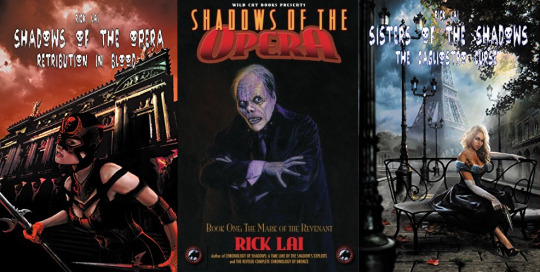
This is part of his take on a WNU headcanon for The Shadow’s family that ties him to Arsene Lupin and The Phantom of the Opera and etc, and we’re not really including it wholesale here, it’s not terribly interesting to me either way, I don’t think The Shadow being blood-related to the Lupins works and I ESPECIALLY DO NOT want to suggest the idea that The Phantom was The Shadow’s dad (and that’s not what the stories go for, thankfully), I absolutely do not think his parents should be established characters in this fashion or that we should even know that much about them in the first place, but the part that’s always stuck with me is the character painted for The Shadow’s mom, which has made it’s way into several other WNU stories, including some published in the Tales of The Shadowmen anthologies as well as Rick Lai’s own Shadows of the Opera trilogy, which are the closest we’ve ever come to a published depiction of The Shadow’s mother (on the very, very, very sparse occasions that his family, as Cranston or Allard, is alluded to in official material, usually it’s only said that Cranston had a rich father and that’s it).
There was no way I couldn’t at least mention, not only the existence of a loose end within The Phantom of the Opera that consists of a character identical to The Shadow, but also the existence of novels focusing on this character as a vigilante by the name of “The Revenant”, who was taught by Erik and works under him while conducting a campaign of vengeance against The Black Coats and recruiting her “Acolytes of Shadows”, and who also happens to be The Shadow’s mom. We can argue whether this is a good idea or whether it undermines The Shadow or whether the stories are even good (...eeh, it’s WNU pulp fanfic, you take it as is), but, yeah, the existence of a trilogy about The Shadow’s badass crime fighting mom who’s also a canon character from The Phantom of the Opera was something I couldn’t not bring up for this post, which has become a lot longer and more fanfic-y than my usual posts.
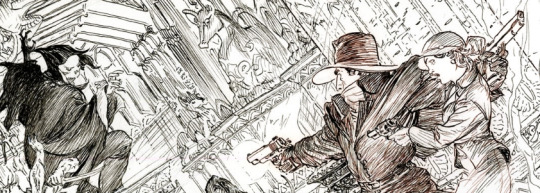
(Art by Michael Kaluta)
So, yeah, these two characters are some of my biggest obsessions, and I’ve thought quite a while about how I would cross over the two or where could the two even meet. I particularly think the real meat of this story lies not in the clash between The Shadow and The Phantom, but in the ways their dual existence warps the world around them and affects those bound to them, and while I would obviously advise some major caution in dealing with The Shadow’s parents or family in a story (there are some very good reasons why it’s never been done), The Phantom of the Opera calls to attention such a heavy focus on love and how it creates and warps relationships it’s difficult not to see that rub off on The Shadow, and the idea of The Shadow’s mom as a former spy and agent of darkness with a connection to The Phantom is one that stuck with me big time.

(Art by MAZM)
I do admit also that Rick Lai’s idea of there being a connection between The Shadow and the Daroga intrigues me a lot though. particularly because the Daroga is such an important character in Erik’s life and one who is desperately in need of good showings in adaptations. His idea consists of the Daroga becoming young Kent Allard’s caretaker following the death of his parents, and, again, not a fan of his parents dying so early or even for them to die at all, not a fan of how close this set-up is to Batman’s childhood but, I don’t know, I like a lot of more recent takes on the Phantom that expand his role in the novel and depict him almost as a strange mix of dad and brother to Erik, the closest he’s ever had to someone who’s actively looking out for him in a protective fashion.
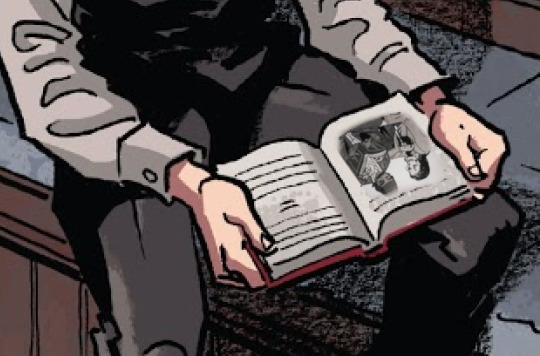
If the Daroga was around and involved in some fashion in young Allard's life, well, would he not do everything in his power to look after him as well as he could? Would he not try his damndest to do right by him as he couldn’t by Erik? The Daroga, a noble and intelligent man described as inscrutable and magnetic and even eccentric, introduced via the narrator vouching for him as “a man of integrity incapable of devising a plot designed to dupe the majesty of the law", keeper of the darkest secrets of the story, steady of mind and kind of heart, ready to throw his life away to save others even at great personal cost, even those others would consider undignified of saving.
A man whom, even if young Allard hadn’t met, would surely be someone he would come to know and respect upon adulthood. He would come to know the struggle the Daroga faced, of his feelings of guilt towards Erik’s crimes, of his regret over his inability to save him from himself.
Would it be enough to even convince The Shadow to, perhaps, extend a more forgiving hand towards The Phantom, in the hopes that he can, instead of being granted death (which he had already spent his whole life in the shadow of), be able to spend the remainder of his life atoning for his crimes and overcoming his tragedies to put his dark gifts for the betterment of the world?
If nothing else, to grant the last wish of an...old friend.

(Original art by Matt Wagner)
Of course this is all just spitballing and speculation, and maybe it’s best for some of these ideas are best left buried underground, at least for now. Let’s end this story the way it would most likely end, with The Shadow living to strike another day, and The Phantom defeated and sent back to the public domain void he will inevitably crawl out of again and again, and reign some of this in.
.....
...Or maybe give me another call in a couple of years, when The Shadow’s as public domain as The Phantom is and thus the boundaries between fanfic and canon no longer apply as much, and we’ll see if I’ll have that kind of restraint then.
THE END
#replies tag#the shadow#the phantom of the opera#poto#pulp heroes#pulp fiction#lamont cranston#kent allard#daroga#erik#raoul#christine#harry vincent#margo lane#almost tagging this as#fanfic#yes I absolutely do advise extreme caution in the subject of The Shadow's parents#yes I absolutely do not think they should be the focal point of a story#yes I am a big stinkin hypocrite who has had a ton of thoughts about The Shadow's family life#yes I was absolutely waiting for the right post to bring up the existence of#the published fanfic trilogy about The Shadow's crimefighting mother#no this post did not take an absurd amount of time why do you ask
28 notes
·
View notes
Text

3 notes
·
View notes
Text
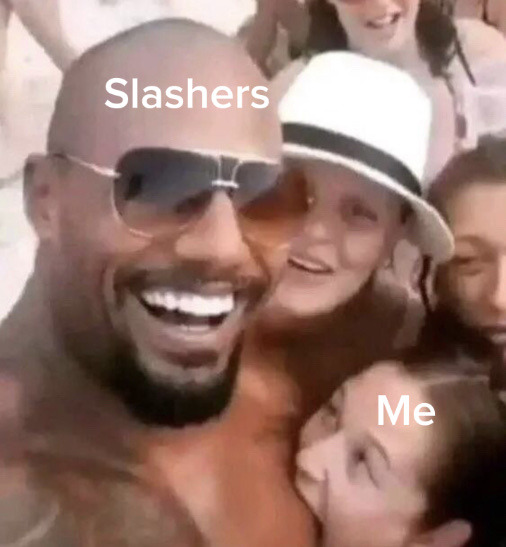
Can you blame me though
#thomas hewitt#bo sinclair#vincent sinclair#lester sinclair#texas chainsaw massacre#house of wax#jason voorhees#asa emory#chromeskull#jesse cromeans#brahms heelshire#the boy 2016#stu matcher#scream 1996#billy loomis#harry warden#rz michael myers#michael myers#art the clown#horror memes#slasher fucker#slasher memes#slashers#pyramid head#pinhead#candyman#billy lenz#bubba sawyer#leatherface#hannibal lecter
1K notes
·
View notes
Text

WIP of best boy Harry Vincent cuz I need to get a feel for his face again
Personal challenge: Draw a conventionally handsome man without letting him look too bland or too chiseled. Unsure how well I'm succeeding.
10 notes
·
View notes
Text
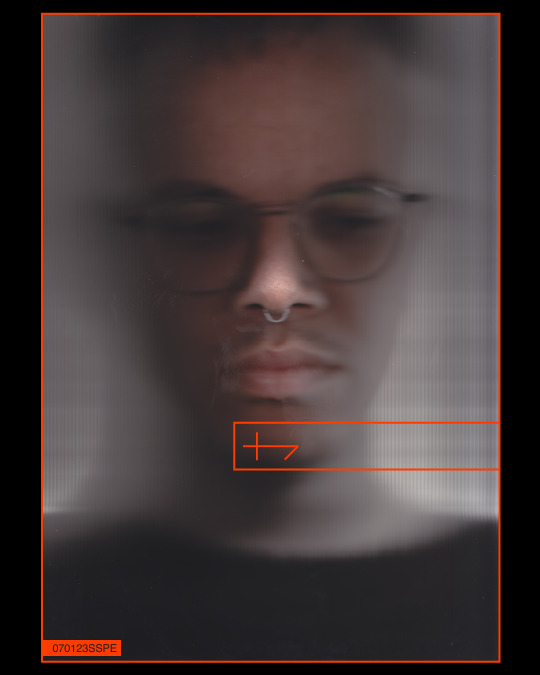
Captured. The unconventional and convention-breaking remain a spectacle. Desired - even. Distractions from the pre-existing. An “Aha” moment, wrapped in yesterday’s newspaper and pre-packaged to be tomorrow’s wrapping paper. [5/7]
SCANNER-SELF: POSE E
[MIXED MEDIA ARTWORK, 2023]
‘Analogue captured portrait using CanoScan LiDE 200 into outlined Getty-style watermark layout.’
IMAGE DESCRIPTION:
A portrait artwork depicting a male-presenting face with glasses in a de-saturated tone. Presented in a Scarlet Red outlined frame format on a Black background.
2 notes
·
View notes